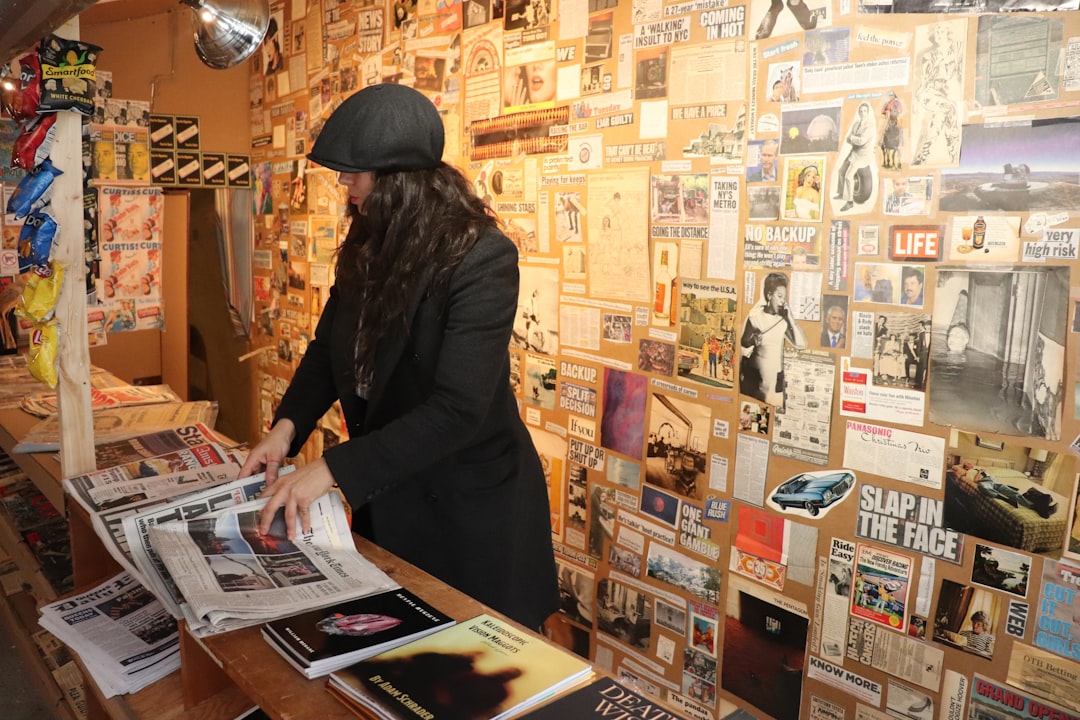The financial side of journalism

If you happen to be unfamiliar with the journalistic side of my professional background, I’ve been dabbling in journalism for over 15 years. I’ve worked as an editor at times, created my own publication during the dot com boom (with about 600k readers a month), have been a correspondent for Variety for over a decade and also contributed to publications such as The Washington Post, WIRED, The Guardian, Esquire, Newsweek, Playboy Magazine (yes, the one you read for the articles!), Mashable, New York Magazine's Vulture, CNN Travel, The Independent (UK), etc.
I’ve been pretty outspoken about how media institution and many individual journalists have lost their way and the general deterioration of trust. But often when we talk about this, we focus on things like bias and ideological capture. We don’t discuss financial structures and incentives, yet those things have had tremendous impact too.
So let’s talk about it, briefly…
Once upon a time, we were heavily limited as to who gets to start a publication. It was an expensive thing to do. Not only did you have the expense of putting together the content—but also printing it and distribution. That was limiting. On the one hand it ensured that the players involved were serious and provided a certain quality filter, but on the other it limited voices that could be heard based on financial standings.
Then along came the Internet and disrupted everything. At first, it was the Wild Wild West. No one really knew what they were doing. But it didn’t cost much and it didn’t take a genius to learn basic coding. I know, because I learned basic coding.
Online publications weren’t taken very seriously initially. And the truth is that a lot of very unserious people ran them. But over time, their audiences grew. So people started caring. They began to matter. They had impact. They couldn’t be ignored. And traditional media couldn’t ignore the Internet either.
But monetization was tough. It was all ad driven at first, then paywalled. Then the paywalls weren’t working, so they were removed. Now they are back again. Sort of.
But here’s the reality. Good, quality journalism takes time. It also takes the time of talented, skilled, experienced people whose time costs money. Investigative journalism, which we particularly lack, takes even more time. And, thus, even more money.
And yet, most people are happy to click on stories that do not represent quality.
If you’re paying a journalist for a story that will take a long time to construct, you want to maximize the “reward” from that story. That means clicks on that story (eg. advertising revenue). (The paywall model is a bit better for journalism as it incentivizes audiences to stick around due to overall commitment to publication, though sensationalist stories play a role in recruiting new subscribers).

The problem we run into is that stories that are cheaper to produce can often actually do better. So if you have a reporter on staff, the question becomes, do you get them to write 8-10 clickbait stories a day that get 1M hits collectively, or tie that reporter’s time up with a quality story that they might work on for two days and might only generate 200k views?
I think we can see what choice most publications are making. That’s why we see so many stories that have zero original reporting, reference other articles, and take between 20 minutes and maximum an hour to write. Reprints/syndication has also increased, especially for local papers who can’t afford to put in much original content.
Quality journalism takes time. You need to research the subject matter. Take the time to find truly good experts to interview. Take the time to speak with them. Triple fact-check. And so on. (And by the way, fact-checkers are almost non-existent at most publications these days).
The other aspect is when stories are assigned to freelance writers, they tend to be shorter than ever in order to cut down on per word rates. The readers get less context and nuance, and the writing actually takes even longer because it’s usually tougher to cut down something of substance to its bones if you want to do it well. But you get paid less. And speaking of getting paid less, $1/word used to be considered a pretty good rate…in the 80s. Today, in 2023, it’s still considered to be a pretty good rate. The less money you earn, the less time you can justify allocating to a story. The more the quality suffers. It’s just reality.
Now, of course, people will bring up these independent tools we have like YouTube Channels and platforms like Substack. These are great options, but they are riddled with their own problems.
The truth is that for the most part, the writers who are able to monetize to the point of making a livable income are the ones who are focused on some mission, ideology, and hyper-partisanship.
Substacks like mine, which don’t really have any interest in that, don’t tend to do so well. People aren’t as motivated to financially support unless they are deeply passionate about some issue (and to the few of you who’ve supported me despite the fact that I don’t fit into any of these boxes, I owe you my deepest of gratitudes).
Unfortunately, it’s just not sustainable in the long term beyond a hobby. I want so badly to do deeper dives into some stories and issues, and I’m currently sitting on one now, which needs a lot more of my time to do properly, hence I haven’t been able to finish it yet. But it’s purely a labor of love. I spend too much time on my Substack because I love sharing my thoughts with you and bringing light to certain topics, but my writing isn’t sensationalist. I’m not driving by an agenda. I’m not political. And financially, frankly, it’s what we call a “loss leader” because I spend too much time not earning an income when I spend my time here. I’m impressed that I’ve kept up with it as much as I did, but at a certain point, I probably won’t be able to. I’ll need to focus on earning an income instead of emptying my savings.
But this is what happens, the financial incentive structure affects so much about how we practice the craft of journalism. Whether the mainstream, or the independent journalists. What’s rewarded is generally that which is more poorly crafted, because it costs less to produce, or that which is sensationalized and ideological, because it appeals to the base nature of the readership.
Until we figure out a way out of that, I’m not sure that we change anything—whether you’re trying to fix traditional journalism, or are embracing the new breed of “citizen” or “independent” journalism.
QUESTION: What other financial models could work to address some of the issues around journalism? I’m very keen to hear from you. Leave a comment below.
☕️ Thoughtful writing takes time. Want to support my work by making a donation and buying me a coffee? Here’s how.
NOTE TO READERS:
Thank you for keeping me company. Although I try to make many posts public and available for free access, to ensure sustainability and future growth—if you can—please consider becoming a paid subscriber. In addition to supporting my work, it will also give you access to an archive of member-only posts. And if you’re already a paid subscriber, THANK YOU. Please also share, like, and comment. Got ideas for future posts? Email me.
Enjoy FREE Premium Membership for a Week! Sign up.
Who am I? I’m a writer with an overactive imagination and a random mind. Outside of Substack, you’ll find my work in publications such as Newsweek, WIRED, Variety, The Washington Post, The Guardian, Esquire, Playboy, Mashable, CNN Travel, The Independent, and many others.




I am not a journalist but attended a university with a journalism school from which my best friend (and roommate for almost 8 years) graduated (and went on mostly to work in trade publications). I have always loved newspapers, the feel of them in my hands, the randomness of what you might find on page 17. Today, as a semi retired but curious individual, I subscribe to only three papers, two of which I receive in digital format plus my twice weekly local paper. I subscribe to the NYT because of the breadth of its coverage. I can read about art, sports, politics, business and entertainment and cap my experience with the crossword and/or the wordle. Of course I also spend some time on line and I look for interesting takes on subjects ranging from astronomy to international culinary delights. Im also a rocket nerd and like to think of where we are all headed next. One of the reasons its more difficult today for a reader is that there is so much available and therefor become difficult to decide both how to spend my time, and my money (the former perhaps more challenging even though I don’t have a huge pile of the latter). To say things were simpler 50 years ago is an understatement.
i have noticed the fact checking has deteriorated over the years and that process is what actually separates "journalism" from "fiction" no? ha! this is a pleasure to read and i hope you will/can continue this "hobby" and keep the interest in long form excellent journalism alive in your own work and that of others